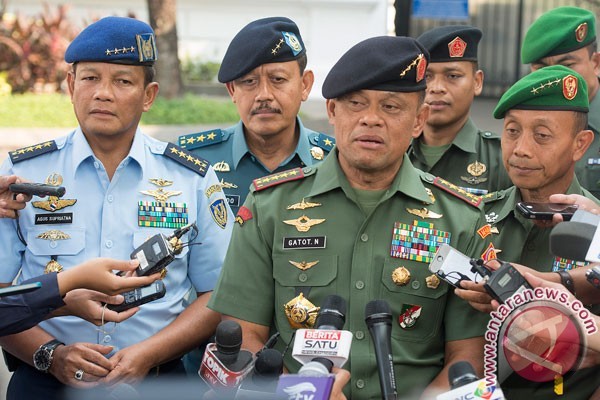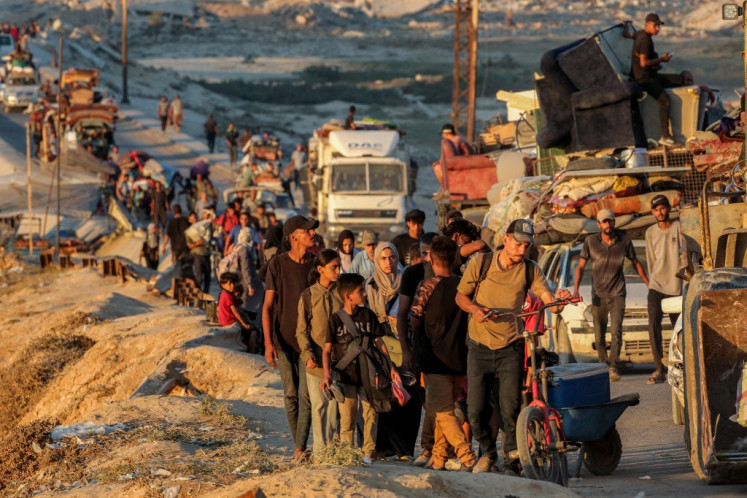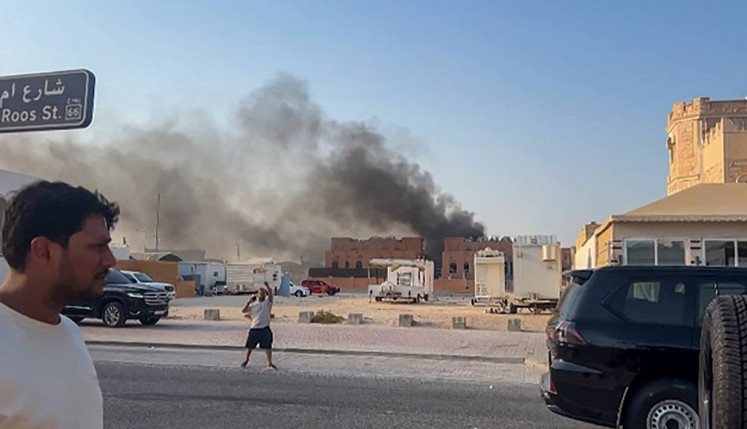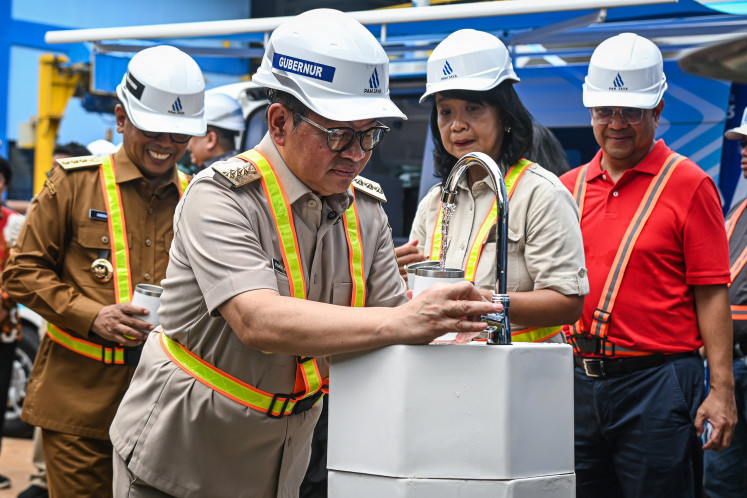Popular Reads
Top Results
Can't find what you're looking for?
View all search resultsPopular Reads
Top Results
Can't find what you're looking for?
View all search resultsTNI told to remain neutral
Change text size
Gift Premium Articles
to Anyone
A
fter almost two decades of reform, the Indonesian Military (TNI), which dominated civilians during Soeharto’s New Order, is still facing opposition in its efforts to attain voting rights.
A recent televised comment from TNI chief Gen. Gatot Nurmantyo expressing his hope for personnel to regain their voting rights was met with criticism on Tuesday, with concerns that such a right would become a source of divide within the force, as members are allowed to support different candidates during elections.
“The military force should always stay neutral and the conflicts of interest may lead to disputes in their internal force, because they may hold different political views from each other,” said lawmaker Supiadin Aries Saputra of the NasDem Party, who is also a member of House of Representatives Commission I overseeing foreign affairs and defense.
In the interview, conducted ahead of the TNI’s 71st anniversary on Wednesday, Gatot recalled the political rights of personnel being denied, which, according to him, made them feel like foreigners in their own country during each election. He hoped military members could be granted the same voting rights as civilians.
But Gatot is well aware of the internal challenges presented in the effort to grant military personnel voting rights.
“It may happen after 10 years,” he said, explaining that the TNI, as an institution, still had internal matters to settle.
Gatot is not the first to call for voting rights for TNI members. Former president Susilo Bambang Yudhoyono, a former military general, also brought up the discussion in 2013.
Indonesian law barred military members from voting after the 1955 legislative elections to maintain the force’s strong support for the government.
During the New Order era the military, however, was given up to 20 percent of House seats by Soeharto, who was also an Army general. The House representation remained a privilege for retired military officers until the fall of the New Order.
Debate on whether military personnel should be given back their voting rights usually occurs nearing elections, in which many former military members vie for legislative and presidential posts.
A judicial review petition was filed ahead of the 2014 polls to challenge the 2008 Presidential Election Law, which only barred TNI and National Police members from voting in the 2009 election. The law contravened the 2012 Legislative Elections Law, which barred the forces’ personnel from voting in 2014 legislative polls.
The Constitutional Court ruled that TNI and police members were also barred from voting in the 2014 presidential election.
The government and the House are working to merge the two laws, along with the 2011 General Election Organizer Law, into one law regulating elections.
Association for Elections and Democracy (Perludem) executive director Titi Anggraini said voting rights for military personnel were acceptable as long the military could fully comply with democratic principles, including strong civil supremacy.
“I support voting rights for military members if all these conditions are met. But, our democracy still lacks monitoring and firm law enforcement,” Titi emphasized.
Wahyudi Djafar of the Institute for Policy Research and Advocacy (Elsam) said it was not easy to maintain TNI neutrality.
He recalled an incident in 1955 when the Siliwangi Military Command openly supported the Supporters of Indonesia Independence Party (IPKI), which was set up by high-ranking military elites after the military failed to secure House seats, to recover the TNI’s active political role.
“Military personnel must first adopt civilian principles to fully enjoy [voting rights as] the product of the civilian democratic system,” he said.










